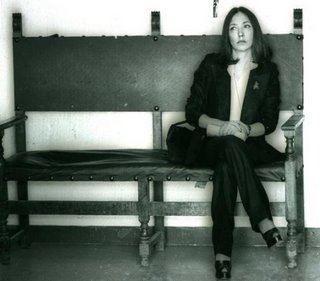Orianna Fallaci dies

When in 1943, the Allies were bombing Florence, Orianna Fallaci and her family took refuge in a church. She started crying, at which her father slapped her and told her never to show her tears again. She didn't, but learnt how to give vent to her feelings with the pen.
She saw herself as a voice for the silent and oppressed, as did and do many. However, she never allowed a party or political creed to make use of her voice. During the Vietnam war, she labelled the regime in the North as Stalinist; she swanned in to interview Khomeini wearing vibrant make-up and told him what she thought of the chador; she lured Kissinger into embarassment by admitting that he saw himself as a lone cowboy. She had a tempestuous affair with the Greek agitator Alekos Panagoulis, imprisoned and tortured by the Colonels for his part in an assassination attempt on Papadopoulos. And she adored the United States, where she lived most of the year.
In the meantime, she interviewed most of the major political and cultural figures of the 60s and 70s.
The 11th of September roused her into a passion. She believed the West was betraying itself as a culture, mind-fogged by Political Correctness and weakness of spirit into accommodating an alien and dangerous presence: Islam. She wrote a rambling, but vitriolic attack on Islam and the European response to it in Corriere della Sera, articles which she then expanded into a book, The Rage and the Pride. Her greatest scorn was poured on Western politicians and intellectuals whom she blamed for forgetting and devaluing their own culture and thus surrendering to an invasive and aggressive, but culturally inferior, Islam.
She seemed a very lonely figure in her last years, though that may be a mistaken impression. While an Italian judge saw fit to bring her to court for 'defaming Islam', a trial which started in June, but will never be concluded, 75,000 other Italians signed a petition that she be made a Life Senator.
Her anger did her credit. She loved a Europe that is threatened and she did her best to defend it.
A recent interview with Fallaci in The New Yorker.

No comments:
Post a Comment